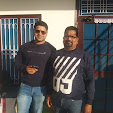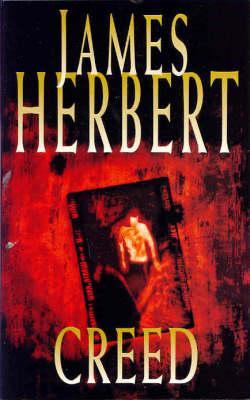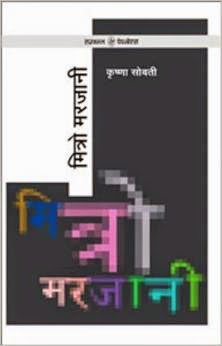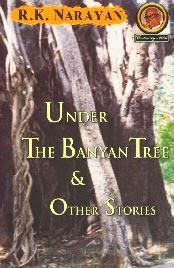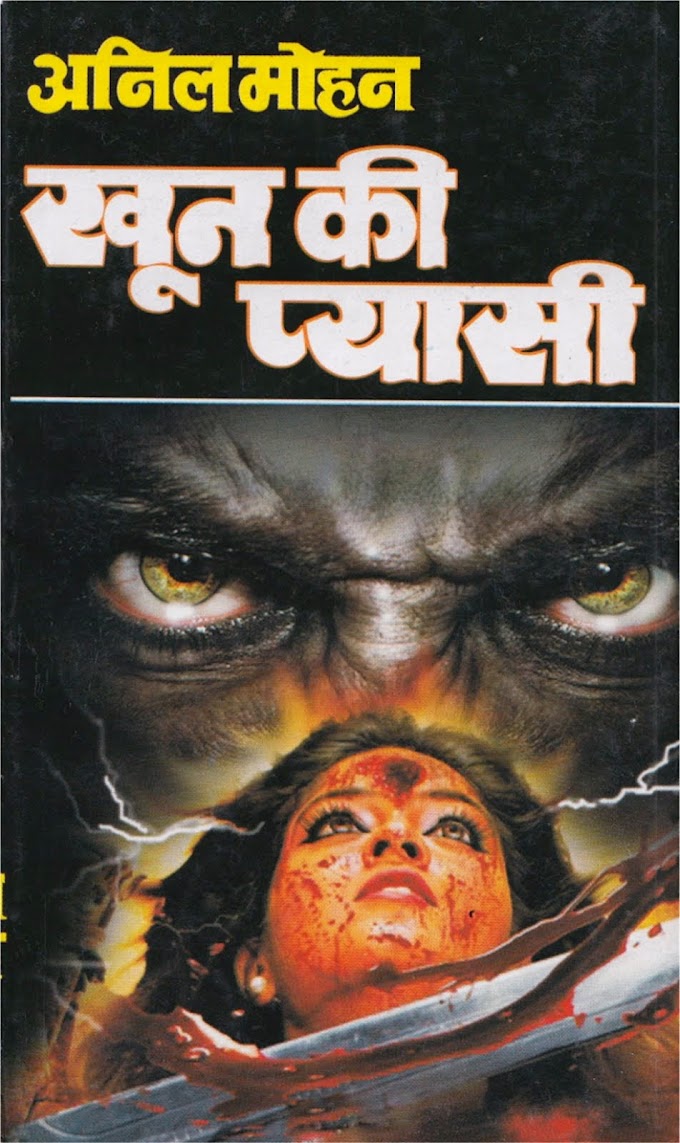Rating: 4/5
Novel was read between May 5th,2016 to May 8th,2016
Edition Details:
Format : Paperback
Page Count: 285
Publisher:National Book Trust
First Sentence:
It was in the first year of the twentieth century that Daya Kaur came to Chak 22, sixteen years old as a bride.
Daya Kaur and Baij singh along with Baij's father Jagat Singh move to Chak 22 where Britishers had allotted land to peasants. Jagat Singh although didn't get the land but he had good relations with the owner Hari Singh whom the land was allotted. And Jagat Singh had thought that this move was temporary as when they acquired prosperity they would move back to their own village. Little did this family know that this temporary period would last for a little less than 50 years.
How did this family live for this time interval?Did they prosper as they had thought? How did this move affect them?
"You give them too much credit for little things, father," Madan replied, supressing his impatience and resentment.
"I don't know," admitted Baij.
"Even if the British had not come, these things would have come."
"Even the railways?"
And see how the changes in the happening the country affected the psyche of Madan:
A few years before the boy's ideal had been different. He had then wanted to be a district judge to avenge the honour of the family that had sustained injury at the hands of the kinsman who had obliged Baij to become a false witness in a murder case. Now he wanted to be a leader to avenge the honour of the country that had been wounded by the Martial law of 1919, and the government's opposition to democratic control of their temples.
Some lines from the book that would help you gauge how the book describes the various aspects of peasant life :
The Britishers had been so intent upon saving the world from German barbarism that they had forgotten that quite a large part of the globe badly wanted saving from its own civilization.
Then he tried to search for the hurt that the British were causing to his people. In his thoughts he came upon a row of big acacia trees on a neighbour's farm, that standing to the south cast their shadows for the greater part of the day on their own crop. They gave a sweet shade, but they killed the corn plants. Thus did he visualize the bane British rule was to his people. It gave peace and good government , but it chucked the nation's growth, dwarfed it. But he could not very clearly decide in favour of cutting down the trees, because of the sweet shade that they gave.
Daya brought the breakfast. The share of the untouchable Sham was handed over to him with the caution that the Westerner would observe only in dealing with a man afflicted with some nasty contagion.
He could be quite unexpectedly facetious like his class. The untouchable has so long kept company with an evil fate, that minor misfortunes only amuse him with their inadequacy, their puny attempts at fullness. He is phlegmatically humorous unlike the peasant who for all his vaunted bravery, still cowers before fate. His courage, his defiance of fate, is more or less calculated; heroic, titanic. The untouchable alone can adopt an attitude of cool, stoic indifference; he shows no excitement under its blows.
A single handed peasant is a tragic character in the peasant-lore of India. The great peasant-lover, Mirza, was murdered because he was single handed. Brothers or sons are the peasant's arms. A Sikh peasant woman is said to have gone to her Guru saint to ask the blessing of a son. The guru granted her seven. She said she would have liked one more. On the Guru's humorously asking her the reason she distributed the peasant's functions among eight so logically that the Guru had no answer. This single handedness is the constant wail of many peasant families in India. It was that of Baij's
"This Brahmin girl allowed an untouchable, a servant of their neighbours to love her. But she wouldn't let him kiss, for that would pollute her, she said. The boy didn't care and kissed her forcibly. She began to weep and said she'd have to purify herself with the sacred water of the Ganges. She broke off in anger, and the boy out of spite made this known to many."
The punjab peasant has a permanent home, the permanence of which is endless as eternity. So long as the ancestral land is there, so long as the clan lives and his origin is traceable to it, so long he looks to the village as his home.
I loved reading this book and really enjoyed it. The characters touched me. I would surely look into other works by the author.
If you have read the book do tell what you felt about it. And if you haven't then you could buy your copy from the following link:
Novel was read between May 5th,2016 to May 8th,2016
Edition Details:
Format : Paperback
Page Count: 285
Publisher:National Book Trust
First Sentence:
It was in the first year of the twentieth century that Daya Kaur came to Chak 22, sixteen years old as a bride.
Blood and soil was written by Sant Singh Sekhon in early 1930's. The book was originally written in English but it was it's punjabi translation Lahu Mitti that cemented the position of Sekhon as a writer.
Daya Kaur and Baij singh along with Baij's father Jagat Singh move to Chak 22 where Britishers had allotted land to peasants. Jagat Singh although didn't get the land but he had good relations with the owner Hari Singh whom the land was allotted. And Jagat Singh had thought that this move was temporary as when they acquired prosperity they would move back to their own village. Little did this family know that this temporary period would last for a little less than 50 years.
How did this family live for this time interval?Did they prosper as they had thought? How did this move affect them?
Blood and Soil is the book set in rural Punjab of the first quarter of the 20th century. The book is all about the dynamics between Baij, Daya and people around them. The reader sees the world in relation to Baij and Daya. What are the aspirations of Baij and Daya? How the relationship between them changes during the course of their marriage?How Daya turns out to be a strong one in the family and Baij to be the meek one. How this affects the perception of children towards their parents.
What are their dreams for their children? What sacrifices they have to do fulfill those dreams?
Apart from that the reader acquainted with the milieu of the village by observing the interactions of Baij and Daya.
What were the things that mattered to them? What are their fights about?What were the things that were scandalous to them? And what sort of social hierarchy existed during that time. In short the book shows the social, political and religious atmosphere of rural Punjab.
The book starts in the year 1901 and the story continues for the next thirty years. During this period the country is going through the change but we are only shown that change with respect to the characters of the story. Although the country is going through these changes we notice that most of these characters are not that much active in it. They are acquainted with it but they have their own personal battles. The older generation are in awe of Britshers and it's in the younger generation that we see the rise of nationalism. Take for example this conversation between Baij and his son :
What are their dreams for their children? What sacrifices they have to do fulfill those dreams?
Apart from that the reader acquainted with the milieu of the village by observing the interactions of Baij and Daya.
What were the things that mattered to them? What are their fights about?What were the things that were scandalous to them? And what sort of social hierarchy existed during that time. In short the book shows the social, political and religious atmosphere of rural Punjab.
The book starts in the year 1901 and the story continues for the next thirty years. During this period the country is going through the change but we are only shown that change with respect to the characters of the story. Although the country is going through these changes we notice that most of these characters are not that much active in it. They are acquainted with it but they have their own personal battles. The older generation are in awe of Britshers and it's in the younger generation that we see the rise of nationalism. Take for example this conversation between Baij and his son :
"You give them too much credit for little things, father," Madan replied, supressing his impatience and resentment.
"I don't know," admitted Baij.
"Even if the British had not come, these things would have come."
"Even the railways?"
And see how the changes in the happening the country affected the psyche of Madan:
A few years before the boy's ideal had been different. He had then wanted to be a district judge to avenge the honour of the family that had sustained injury at the hands of the kinsman who had obliged Baij to become a false witness in a murder case. Now he wanted to be a leader to avenge the honour of the country that had been wounded by the Martial law of 1919, and the government's opposition to democratic control of their temples.
Some lines from the book that would help you gauge how the book describes the various aspects of peasant life :
The Britishers had been so intent upon saving the world from German barbarism that they had forgotten that quite a large part of the globe badly wanted saving from its own civilization.
Then he tried to search for the hurt that the British were causing to his people. In his thoughts he came upon a row of big acacia trees on a neighbour's farm, that standing to the south cast their shadows for the greater part of the day on their own crop. They gave a sweet shade, but they killed the corn plants. Thus did he visualize the bane British rule was to his people. It gave peace and good government , but it chucked the nation's growth, dwarfed it. But he could not very clearly decide in favour of cutting down the trees, because of the sweet shade that they gave.
Daya brought the breakfast. The share of the untouchable Sham was handed over to him with the caution that the Westerner would observe only in dealing with a man afflicted with some nasty contagion.
He could be quite unexpectedly facetious like his class. The untouchable has so long kept company with an evil fate, that minor misfortunes only amuse him with their inadequacy, their puny attempts at fullness. He is phlegmatically humorous unlike the peasant who for all his vaunted bravery, still cowers before fate. His courage, his defiance of fate, is more or less calculated; heroic, titanic. The untouchable alone can adopt an attitude of cool, stoic indifference; he shows no excitement under its blows.
A single handed peasant is a tragic character in the peasant-lore of India. The great peasant-lover, Mirza, was murdered because he was single handed. Brothers or sons are the peasant's arms. A Sikh peasant woman is said to have gone to her Guru saint to ask the blessing of a son. The guru granted her seven. She said she would have liked one more. On the Guru's humorously asking her the reason she distributed the peasant's functions among eight so logically that the Guru had no answer. This single handedness is the constant wail of many peasant families in India. It was that of Baij's
"This Brahmin girl allowed an untouchable, a servant of their neighbours to love her. But she wouldn't let him kiss, for that would pollute her, she said. The boy didn't care and kissed her forcibly. She began to weep and said she'd have to purify herself with the sacred water of the Ganges. She broke off in anger, and the boy out of spite made this known to many."
The punjab peasant has a permanent home, the permanence of which is endless as eternity. So long as the ancestral land is there, so long as the clan lives and his origin is traceable to it, so long he looks to the village as his home.
I loved reading this book and really enjoyed it. The characters touched me. I would surely look into other works by the author.
If you have read the book do tell what you felt about it. And if you haven't then you could buy your copy from the following link:
FTC Disclosure: इस पोस्ट में एफिलिएट लिंक्स मौजूद हैं। अगर आप इन लिंक्स के माध्यम से खरीददारी करते हैं तो एक बुक जर्नल को उसके एवज में छोटा सा कमीशन मिलता है। आपको इसके लिए कोई अतिरिक्त शुल्क नहीं देना पड़ेगा। ये पैसा साइट के रखरखाव में काम आता है। This post may contain affiliate links. If you buy from these links Ek Book Journal receives a small percentage of your purchase as a commission. You are not charged extra for your purchase. This money is used in maintainence of the website.





